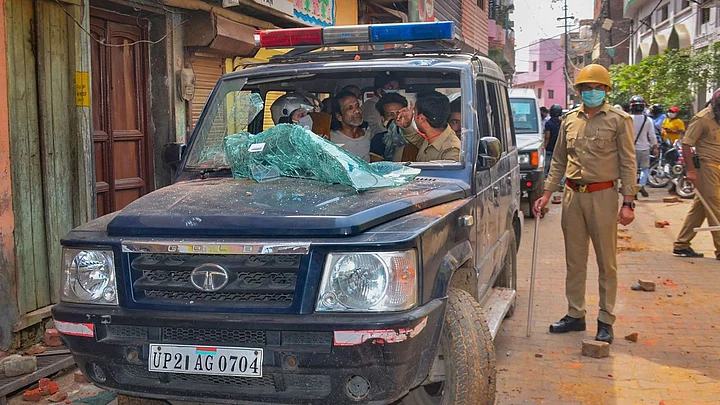On Wednesday, 22 April, President Ram Nath Kovind promulgated the Epidemic Diseases (Amendment) Ordinance 2020.
The Centre had announced it was passing this ordinance earlier during the day, with Prime Minister Narendra Modi tweeting that it “manifests our commitment to protect each and every healthcare worker who is bravely battling COVID-19 on the frontline.”
Speaking to the press, Union Minister Prakash Javadekar also talked up the ordinance as a measure to keep healthcare workers safe, and noted that under the ordinance, “If damage is done to the vehicles or clinics of healthcare workers, then a compensation amounting to twice the market value of the damaged property will be taken from the accused.”
However, this is not the only punishment prescribed under the new ordinance, which provides for a minimum of 3 months’ imprisonment and a Rs 50,000 fine.
While these moves will no doubt be welcomed by healthcare workers, who have faced threats to their safety while attempting to do their job during the coronavirus crisis (and even otherwise), the ordinance also controversially presumes the guilt of accused persons in certain cases.
What Does the Ordinance Punish?
The ordinance punishes any 'act of violence' against 'healthcare service personnel', ie any person who has epidemic-related responsibilities, and thereby comes in contact with affected patients – including doctors, nurses, etc at private and public hospitals.
The definition of an act of violence includes not just direct harm, injury, obstruction or intimidation of the healthcare worker, but also covers harassment impacting their living or working conditions, and damage to property (equipment, ambulances, etc) or documents connected to a healthcare worker.
Investigations into such cases are to be completed within 30 days of the registration of an FIR regarding the incident, and trials are to be fast-tracked to be completed within 1 year.
The punishment for anyone convicted of committing an act of violence against healthcare service personnel or damaging any property relating to them such as their equipment is three months to five years of imprisonment, and a fine of Rs 50,000 to Rs 2 lakh. Cases where the violence was not severe can be compounded, ie settled, with the consent of the victim.
Presumption of Guilt in Grievous Hurt Cases
If the person committing an act of violence also causes grievous hurt (defined here) to the healthcare worker, things are different.
Firstly, the punishment is more severe: a minimum of six months’ imprisonment and a Rs 1 lakh fine, and a maximum of seven years’ imprisonment and a Rs 5 lakh fine.
Secondly, in cases involving grievous hurt, the ordinance also reverses the burden of proof and creates a presumption of guilt.
If a person is prosecuted for having committed such serious violence, it will be presumed they committed the offence and had the intention of doing so, unless the accused person can prove otherwise.
Generally, in criminal law, the burden of proof is on the prosecution to prove beyond reasonable doubt that a person has committed a criminal offence. By reversing this burden of proof, the ordinance will require those tried in grievous hurt cases to prove, beyond reasonable doubt, that they did not commit the offence, or did not have the required mental state to do it.
Requirement to Pay Compensation
In all cases – whether those involving grievous hurt or otherwise – the person convicted of committing an act of violence will also have to pay compensation for the violence against a healthcare worker and/or damage to property.
In property cases, the compensation will be equal to twice the fair market value of the property or loss caused.
(At The Quint, we question everything. Play an active role in shaping our journalism by becoming a member today.)
